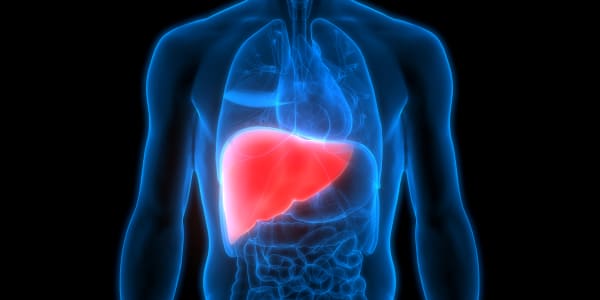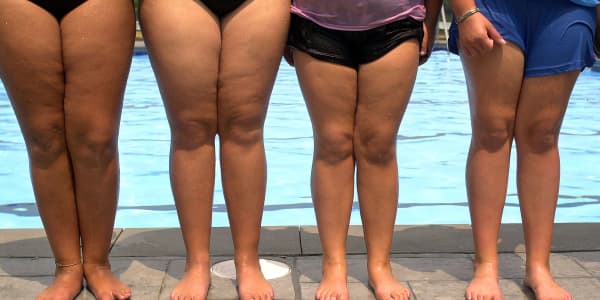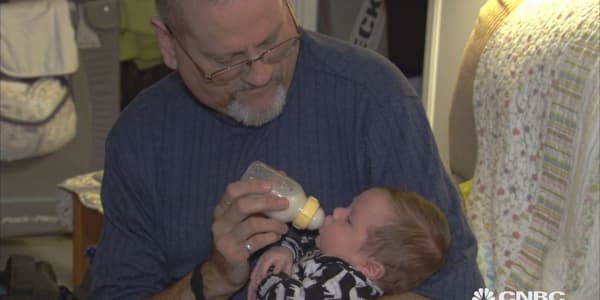Scientists are inching toward developing a vaccine for AIDS, an immunodeficiency disease caused by the HIV virus that currently affects 36.7 million people worldwide, according to the World Health Organization.
In a paper published in the journal Science in September, scientists from the National Institutes of Health and Paris-based pharmaceutical company Sanofi described a "three-pronged" antibody, engineered in a lab, that binds to three critical sites on the HIV virus. By attacking the virus from three sides, the "trispecific" antibody creates a roadblock that even HIV — known for its constant mutating — should struggle to circumvent.
"This is very impressive and really very exciting for people who are looking for ways to prevent HIV acquisition," said Rowena Johnston, director of research at amfAR, a foundation that raises money for the study of AIDS.
Though therapies for HIV/AIDS now allow people to more effectively manage the disease, it still claims 1 million lives around the world every year and represents about $3.5 billion in annual U.S. health-care costs. The rate of new infections in the U.S. has fallen in recent years, to 37,600 in 2014 (the most recent year for which stats are available). But in Africa — where two-thirds of all new infections occur — there were 960,000 new AIDS/HIV cases in 2016.
Further alarming health advocates is the Trump administration's decision to slash its global HIV/AIDS spending by 24 percent, leaving nonprofits like the Bill & Melinda Gates Foundation scrambling to make up the shortfall. "There's no way to balance a cut in a rich country's generosity," said Mr. Gates in September.
Quest for a cure
The promise of an AIDS vaccine has tempted, but eluded, scientists for decades. It's been 37 years since Margaret Heckler, Secretary of Health and Human Services under President Ronald Reagan, infamously told reporters at the press conference announcing the discovery of AIDS that a vaccine would be ready for testing within two years. Twenty-one years after that, the New England Journal of Medicine — following the collapse of yet another promising phase-3 study — referred to the flagging search for an AIDS vaccine as "a Sisyphean onslaught of disappointments."
HIV is spread through the sharing of specific bodily fluids — blood, semen, breast milk and vaginal or rectal fluids — which typically occur during intercourse or the sharing of intravenous needles. Once inside the body, HIV attacks a certain kind of immune-system cell known as CD4. By destroying these cells, the virus makes it harder for your body to fight off disease, increasing the risk of major illness from even minor infections.
But in recent years, scientists have discovered a kind of antibody in people living longer with the virus, which has reinvigorated the pursuit. Known as broadly neutralizing antibodies, these Y-shaped proteins — which occur in about 20 percent of infected people living with HIV for two or more years — helps defend against multiple strains of HIV and are thought to play a role in helping people fend off the infection. Multiple studies have since tested ways in which broadly neutralizing antibodies could help stave off HIV infection or slow its growth in those already infected.
More from Modern Medicine:
Growing old with HIV after decades of drug success
A party drug could become next blockbuster antidepression treatment
New cure under way for the 80 million people in US dealing with hair loss
Of course, the antibodies have their limitations. "Each individual antibody only binds to one very specific component of the HIV envelope, or the outer covering," said Anthony S. Fauci, director of the National Institute of Allergy and Infectious Diseases, who helped oversee the new study. But HIV is constantly mutating, so no single antibody can hold off the virus for long. Eventually, the virus will happen upon a mutation that allows it to get around the protection provided by the single antibody.
Genetic engineering feat
What the NIH and Sanofi scientists did was combine three broadly neutralizing antibodies into a single compound. Johnston, who was not involved in the research, compared the approach with antiretroviral therapy, which has become the standard in HIV treatment by slowing the virus' growth through a strategic combination of drugs. "If you're only taking one type of drug, then your HIV would escape from that," she said. "It's possible two would work, but three really seals the deal."
The redundancy of three different antibodies makes escape-by-mutation practically impossible. "HIV would have to come up with such an elaborate set of mutations to escape from all three of these antibodies simultaneously that it's almost certainly not going to happen," she said.
This is a solid incremental increase in our capability of dealing with and preventing HIV infection.Anthony Faucidirector, National Institute of Allergy and Infectious Diseases
Combining three antibodies into a single compound — a remarkable feat of engineering, noted Johnston — not only provides greater protection against the virus but is optimized to move swiftly through the arduous FDA-approval process.
"It's very complicated to get approval to do a trial in which you're trying to combine more than one thing," said Johnston. "If you're trying to do drug A and drug B, the FDA would prefer you start out looking at just drug A and just drug B before they give you permission to put A and B together."
The trispecific antibody circumvents that process — an ancillary benefit that Fauci referred to as a "bonus." "We weren't thinking about the FDA when we did this," he said.
If it proves safe and effective in humans, the drug could be used both as a vaccine and a treatment for people already living with the disease. A phase 1 trial is now slated to begin in late 2018. If all goes well, it could potentially be on the market within the next three years.
Still, Fauci was careful not to overstate the significance of the current findings.
"This is a solid incremental increase in our capability of dealing with and preventing HIV infection," he said. "It's significant, but it isn't completely transforming."
That could change, of course. But only time will tell. "It ain't a breakthrough till it works," Fauci said.
— By Douglas Quenqua, special to CNBC.com




